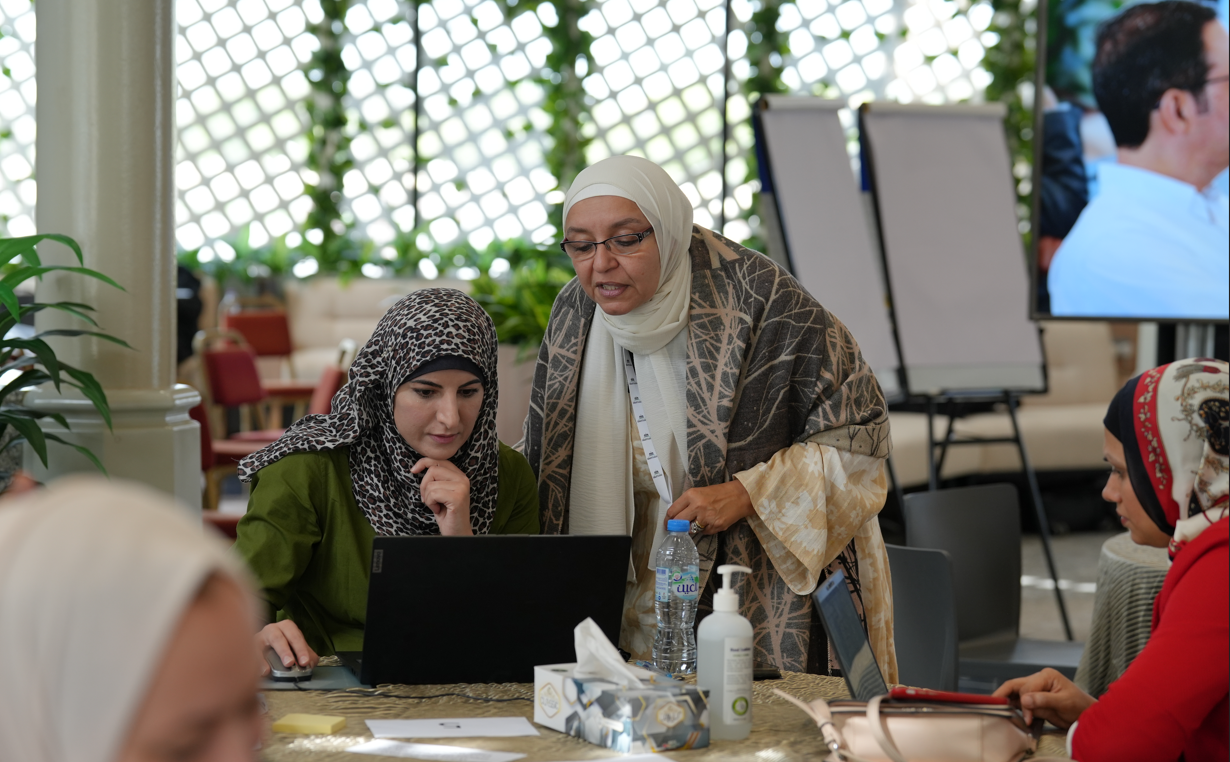The University of Sharjah (UoS) is helping shape the future of education across the region. As a key member of the University Consortium for Quality Online Learning (UCQOL), an initiative founded by the Abdulla Al Ghurair Foundation (AGF) and implemented by Centreity, UoS is building a hybrid learning model that is emerging as a regional benchmark for scale, excellence, and student impact.
We spoke with Dr. Hussein M. Elmehdi, Dean of Academic Support Services and, about UoS’s journey to becoming a hybrid-ready university and what that means for learners today.

“Hybrid learning isn’t just a convenience—it’s a necessity,” Dr. Elmehdi said.
At UoS, the shift is not a response to disruptions, but a deliberate strategy. Many of its students often balance full-time work, caregiving, or health challenges. A rigid model excludes them. Hybrid learning opens doors. “It gives our students agency,” he emphasized. “They don’t have to choose between a career and a degree. They can do both, with quality and consistency.”
But flexibility is just the starting point. The hybrid model is built to strengthen digital fluency, critical thinking, and problem-solving; skills that are increasingly vital in today’s workforce.
“We’re not just teaching content,” he said. “We’re preparing students for the world they’re entering.”
Dr. Elmehdi described UCQOL as a platform that empowers institutions to act, adapt, and innovate. At UoS, the consortium enabled a rapid transformation by focusing on four pillars: faculty capacity, digital infrastructure, enabling policies that drive innovation, and fostering inter-institutional collaboration.
“It’s a launchpad,” he explained. “It gave us the structure to act fast and the flexibility to shape it around our mission.”
Through peer learning with other institutions in the consortium, UoS gained real-time insights and best practices. “This wasn’t abstract theory—it was practical, actionable knowledge that helped us move with confidence.”
UoS’s transformation was supported by close collaboration with AGF and Centreity.
“AGF has been instrumental in building the digital confidence of our faculty,” he said. “They didn’t just deliver training—they delivered transformation.”
Centreity contributed to strategy and execution. “They helped us architect scalable, student-centered systems. From course design to digital infrastructure, they were with us every step of the way.”
The result? A university ecosystem that’s aligned—across faculty, IT teams, leadership—committed to delivering impactful hybrid learning.

Faculty working on presentations for the Digital Trailblazers Workshop in August 2024. Photo courtesy of AGF.
UoS went beyond basic digital training. Programs like the Digital Trailblazers and the Faculty Micromastery Series equipping educators to design for engagement, personalization, and tech-enabled problem solving.
“Centreity helped us move beyond check-the-box training,” Dr. Elmehdi said. “They empowered our faculty to rethink what teaching can be.”
This has led to a lasting cultural shift. Today, hybrid-first thinking is embedded in how faculty and support teams design, asses, and deliver learning. “It’s one of the most powerful shifts we’ve made,” he added.
Innovation at UoS is guided by evidence. The university uses student engagement data, academic outcomes, platform analytics, and retention trends to inform ongoing improvements.
“We’re not flying blind,” Dr. Elmehdi said. “Every decision we make is anchored in real-time data.”
UoS aims to be fully hybrid-capable by 2026. This includes scaled infrastructure, hybrid-first curricula, faculty development programs, and advanced digital assessment systems.
The university will continue to deepen its collaboration with UCQOL, AGF, and Centreity to keep driving innovation across departments.
Recognition has followed. UoS was recently awarded UNESCO’s Higher Education Digitalization Pioneer Case Award, spotlighting its leadership in rethinking education.
“This award isn’t the destination,” Dr. Elmehdi said. “It’s fuel to go even further.”
UoS’s hybrid transformation is a full-system shift, rooted in student needs, forward-thinking leadership, and purposeful partnerships.
“We’re not reacting to change,” Dr. Elmehdi concluded. “We’re creating it.”
Stay tuned as we continue to spotlight the inspiring universities and faculty members leading innovation within the UCQOL consortium. From groundbreaking hybrid strategies to faculty-driven transformation, each story offers a glimpse into how higher education is being reimagined across the region—and beyond.


